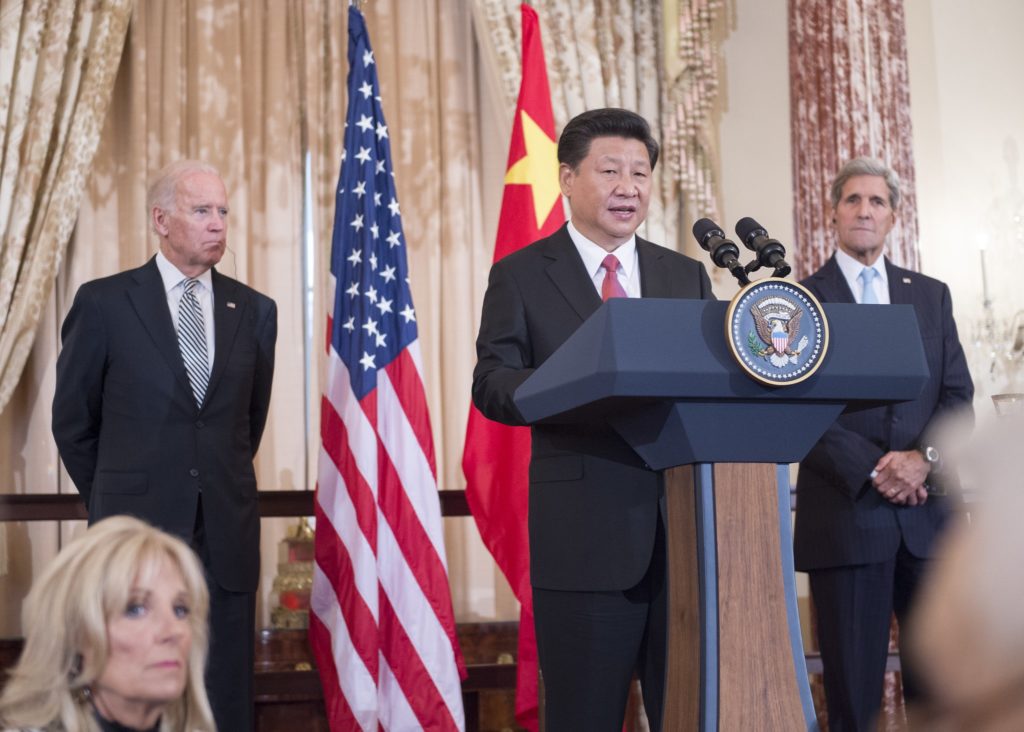The Peninsula
China’s Relations with the Biden Administration on North Korea

Since its inauguration, the Biden Administration has faced a long list of pressing domestic and foreign policy issues and challenges to tackle. People wonder how high North Korea ranks on the list- probably not among the top five unless another round of provocation forces Washington to refocus attention back on Pyongyang. There have been the renewed debates over diplomatic engagement versus strategic patience, and between a denuclearization approach and an arms control approach to the North Korean nuclear program. Regardless of their position, people seem to agree that enlisting China’s cooperation, especially through enhanced sanctions and strict implementations will be a must for the outcome that U.S. is seeking.
Desirable as it sounds, the path to Chinese cooperation on North Korea at this point is unlikely to be direct or smooth- and it has never been. Although China at the current moment has a strong incentive to seek issues of cooperation with the Biden Administration, the cooperation is motivated primarily by tactical considerations to stabilize U.S.-China relations, rather than by a change of strategic calculations about the Korean peninsula regarding the future power equilibrium in Northeast Asia. China is unlikely to be the first mover vis-à-vis Biden on North Korea. And the transactional mentality that determines its level of cooperation will depend on the offer U.S. is willing to make.
After four years of turbulence, including the last year of “freefall” of U.S.-China relations under President Trump, two perceptions have prevailed in China. The first one is a sense of triumph that China has “weathered the storms” of both the COVID-19 pandemic and of the Trump presidency. The second is that since time is on China’s side, China should avoid confrontation with the U.S. and seek cooperation when possible to save costs and attest to its benevolent rise. The two mentalities jointly determine the Chinese desire to pursue cooperation with Biden, but it also means that Beijing will not accept terms and goals unilaterally dictated by Washington. Indeed, popular issues circulated by Chinese interlocutors for such cooperation have included nuclear nonproliferation issues such as Iran and North Korea, climate change, and cooperation on COVID-19 and post-pandemic recovery.
Coming to cooperation, China’s calculation is highly transactional and practical. Given the overall context of great power competition as the theme of the U.S. national security strategy, Beijing questions how cooperation on North Korea benefits China- whether it will improve the negative trajectory of U.S.-China relations, or it will bring China tactical gains such as on issues of Xinjiang or Hong Kong. The crown jewel Beijing desires the most apparently is over Taiwan- but a quid pro quo over North Korea and Taiwan appears never in the cards. If nothing renders, Beijing’s default instinct to prepare for the intensifying great power competition is to hoard North Korea as strategic leverage, rather than abandon North Korea and aggravate its own position.
And China has been hoarding North Korea as strategic leverage since 2018. The long winter of deterioration of Sino-DPRK relationship officially ended in 2018, signified by Kim Jong-Un’s four visits to China in March, May, and June of 2018 and January 2019, and Xi Jinping’s June 2019 visit to North Korea. Although official trade and investment are still subject to UN sanctions, illicit economic activities, including black market trade, smuggling and illegal sales of fishing rights, have increased significantly, especially in 2019. Since then, North Korea’s economic hardship since early 2020 due to COVID and the country’s lockdown has made China more important than ever as the hermit kingdom’s sole patron.
Currently, it will be difficult to convince Beijing to embrace more sanctions on North Korea. China and Russia had called for the easing of sanctions on North Korea as early as 2019, as a reward for its self-imposed moratoriums on nuclear and long-range missile testing. Although such an effort was unlikely to succeed at the first place due to the U.S. opposition by default, it does underscore the Chinese sympathy for the North Korean position- that its engagement efforts with Trump and the moratorium have rendered nothing concrete in return. It is highly unlikely that China’s cooperation on North Korea sanctions will exceed its 2017 level again.
All these are predicated on the assumption that the situation will remain relatively stable and North Korea does not resort to provocations to push Biden. If the situation on the Korean peninsula returns to the action-reaction, provocation- sanction cycle, China might drag its feet but still will have to demonstrate a principled position to oppose such provocation. However, if that were the case, the door to diplomatic engagement between U.S. and DPRK will also quickly close, returning the world to where it was nine years ago after the failed Leap Day Agreement.
If it has the choice, Beijing most likely wishes to turn North Korea into a sterling example of U.S.-China great power cooperation without abandoning the country to prove that the Sino-U.S. relationship is not damaged beyond repair and China’s desired rise and envisioned power transition with the U.S. could still avoid the Thucydides Trap and be peaceful. But it does not negate the fact that any cooperation China is willing to provide will be limited and incomplete, and will serve China’s long-term strategic goal to outcompete the United States and leverage issue linkages against it.
Yun Sun is a Senior Fellow and Co-Director of the East Asia Program and Director of the China Program at the Stimson Center. The views expressed here are the author’s alone.
Image from the U.S. Department of State’s photostream on flickr Creative Commons.
